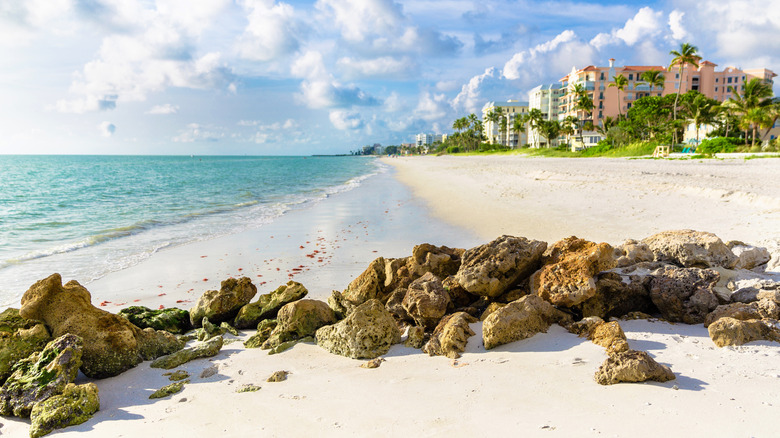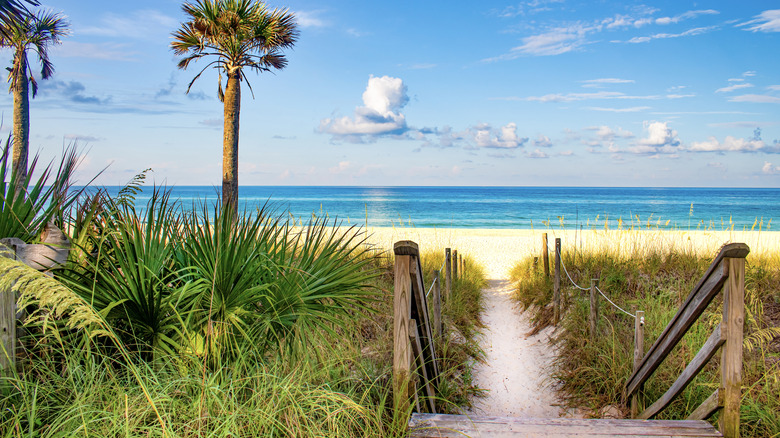What Tourists Need To Know About Florida's New Law Before Planning A Beach Getaway
If you've been trying to decide if the Gulf or Atlantic is best for your Florida beach vacation, a new law could carry some weight. On June 24, 2025, Governor Ron DeSantis signed Senate Bill 1622, which repeals a controversial 2018 state law that essentially made it easier for property owners to mark sections of the beach as private. That law kicked up a lot of sand, making it nearly impossible for officials to protect "customary use," meaning recreational activities like swimming, sunbathing, fishing, and even walking on some beaches.
Customary use became a hot topic in Walton County with a 2016 county ordinance allowing officials to designate recreational access of dry sand beach areas — even if it was on private property. However, the 2018 law made it so that officials couldn't approve any customary use without jumping through a series of hoops, including notifying beach property owners, holding a public hearing, and getting court approval. Of Walton County's 26 miles of beaches, that left only 9 miles protected as public. For a county that relies heavily on tourism, that was a big blow to the local economy.
With this new law, not only can local governments open sandy stretches of beach to the public, but it gives a boost to beach conservation projects. Environmental officials say around 19 miles of Walton County's coastline is considered critically eroded. "This will ensure the restoration projects can begin very quickly, and that every dollar we invest in rebuilding the beach goes towards actual sand and vegetation, not needless litigation," DeSantis said at the bill signing.
What Florida's Senate Bill 1622 means for beachgoers
Governor DeSantis said that the new law is "about restoring local control" and making sure that public beaches stay public for Floridians and visitors alike. Local officials can once again designate areas of dry sand for public enjoyment without first suing homeowners — and that means more space to walk, wade, and sunbathe without worrying about trespassing signs.
While the "war at the shore" may be coming to an end, there are still some things to keep in mind before parking your beach towel in front of someone's private residence. When booking accommodations, it's smart to check with your hotel or vacation rental about the nearest publicly accessible beach, especially in counties like Walton, where private homes line much of the coast. If you come across "no trespassing" signs above the high-water line, ask nearby businesses or visitor centers about which dry-sand zones are officially open.
Although this law affects Walton County in particular, it sets a statewide precedent to keep more of Florida's beaches open to the public. So whether you're exploring Florida's wild panhandle on a road trip or headed to the highest rated Florida Keys beaches, you can expect more sun and sand rather than hostile homeowners.

